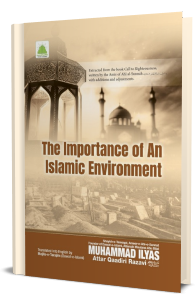
Islam’s Profound Teachings
Exemplars of virtuous character
Nasir Jamal Attari Madani
The final Prophet of Allah صَلَّى الـلّٰـهُ عَلَيْهِ وَاٰلِهٖ وَسَلَّم expressed a very beautiful message from amongst the illuminated teachings of Islam, and explained a delightful principle governing harmonious social interaction, in the following words: وَخَالِقِ النَّاسَ بِخُلُقٍ حَسَن – “And treat people with beautiful character.”[1]
حَسَن connotes a strongly established habit by which all tasks are easily accomplished. This is known as خُلُقٍ حَسَن – good character. Another meaning of this is to greet others with a smile, removing a harmful thing, and spending on acts of piety. Additional commenataries also show this means to treat others the way one would like to be treated.[2]
From this clarification, it is apparent that an occasional good act, such as occasionally suppressing unwarranted anger; despite this being a virtuous action, it is not considered good character until it becomes a facet of one’s nature.
Mawlana Ilyas Attar al-Qadiri دَامَـتْ بَـرَكَـاتُـهُـمُ الْـعَـالِـيَـهْwrites:
A person is commonly termed to have good character if he smiles and meets people warmly. Although this is part of good character, it also includes good social conduct, benefiting others, saving them from harm, etc. There are many who smile and greet with enthusiasm, but at the same time they harm others. If something opposes their temperament, they fly into a rage.
For example, someone greeted you cordially and presented you a plate of biryani. At this point, you say something he did not like, causing him to throw the plate in your face. We will not term this as good manners, but bad behaviour instead.
You will even find some businesspeople who seem to exhibit good character. They smile and courteously present tea and cold drinks to customers, welcoming them. Yet, if they do not make a sale or when a price is suggested which does not appeal to their disposition, they become hot tempered. Such people are not good charactered either; in fact, they are driven by benefit. Their ‘good manners’ are not to please Allah Almighty, but to entrap a customer.
One will be rewarded for smiling and greeting others warmly when these actions are done to please Allah Almighty. Said actions must be free from personal benefit, such as gaining a sale, wanting people to be impressed by oneself, or seeking praise etc.[3]
Just as small holes in a boat sailing in deep waters make its sinking certain, the ship of life is sunk by bad character. Adopting beautiful character is most beneficial in attaining salvation in life.
Good character has a foundational role in making one’s conduct shine, as a person is recognised as good or bad according to his character. If a person’s character is good, there is always hope of his mistakes being rectified. If their character is bad, the possibility of his other virtues coming to an end is increased. An individual’s conduct with others is as good as his character. Everyone respects a good charactered person and he is valued everywhere. Conversely, a bad charactered person is neither afforded respect in people’s hearts nor appreciated; rather, people strive to avoid him.
Our beloved Prophet Muhammad صَلَّى الـلّٰـهُ عَلَيْهِ وَاٰلِهٖ وَسَلَّم possesses the finest character in this world and the Hereafter. Allah Almighty has praised his character in the Quran and sent him into the world to perfect good character. The Prophet صَلَّى الـلّٰـهُ عَلَيْهِ وَاٰلِهٖ وَسَلَّم stated, ا ِنَّ اللهَ بَعَثَنِیۡ بِتَمَامِ مَكَارِمِ الْاَخۡلَاقِ وَكَمَالِ مَحَاسِنِ الۡاَ فۡعَالِ – “Indeed, Allah sent me to complete noble character and perfect beautiful action.”[4]
Virtues of good character
The Messenger of Allah صَلَّى الـلّٰـهُ عَلَيْهِ وَاٰلِهٖ وَسَلَّم mentioned the following merits of good character.
1. Indeed, by his beautiful character, the believer attains the station of he who fasts in the day and stands ˹in prayer˺ at night.[5]
2. The Prophet صَلَّى الـلّٰـهُ عَلَيْهِ وَاٰلِهٖ وَسَلَّم was asked, “What is the best thing a Muslim is given?” He replied, “Good character.”[6]
3. There is nothing heavier in the scale of deeds than good character.[7]
4. The Prophet صَلَّى الـلّٰـهُ عَلَيْهِ وَاٰلِهٖ وَسَلَّم used to make dua as such: اَللّٰھُمَّ اِنِّیْ اَعُوْذُ بِکَ مِنَ الشِّقَاقِ وَالنِّفَاقِ وَسُو ءِ الْاَخْلَاقِ – “O Allah! I seek refuge in You from hating people, hypocrisy, and evil character.”[8]
5. The Prophet صَلَّى الـلّٰـهُ عَلَيْهِ وَاٰلِهٖ وَسَلَّم was asked, “What most admits people to Paradise?” He explained, “Fear of Allah and good manners.”[9]
Come! Let us analyse our good character
There is no doubt good character is an excellent means of bettering our life in this world and the Hereafter. If someone errs, rather than causing him pain by scolding and disheartening him, we should make a habit of showing forbearance and mercy. We should pardon his mistake. Where it is necessary to speak out, cease the habit of remaining silent. Where it is necessary to remain silent, break the habit of speaking.
Issues are sometimes resolved by speaking. Other times one must remain silent, so problems do not arise. The attraction of a smile is greater than a magnet, so try to keep smiling. Pick up the downtrodden, and be humble instead of arrogant. Be compassionate to children and respectful to elders. If you are experiencing the heat of trials and tribulations, immediately take refuge in the shade of patience. You will be saved from impatience and attain relief. You will find the teachings of good character in the Quran, hadith, and writings of the pious elders. There is untold blessings in reading them.
However, observing pious people’s character is most effective in learning beautiful character. In this regard, Dawat-e-Islami provides many opportunities in the form of Islamic Activities, such as the weekly gathering, Madani Muzakaras, and training courses etc. Affiliate yourselves with the Islamic environment of Dawat-e-Islami to acquire beautiful character. You will attain countless benefits in this world and the Hereafter.
[1] Sunan Tirmidhī, vol. 3, p. 398, hadith 1994
[2] Al-Futūḥat al-Rabbāniyyah, vol. 7, p. 240
[3] Chehra Khūbsūrat Banānē kā Amal, pp. 1-2
[4] Majmaʿ al-Zawāʾid, vol. 8, p. 343, hadith 13684
[5] Abū Dāwūd, vol. 4, p. 332, hadith 4798
[6] Shuʿab al-Īmān, vol. 6, p. 235, hadith 7992
[7] Abū Dāwūd, vol. 4, p. 332, hadith 4799
[8] Ibid, vol. 2, p. 130, hadith 1546
[9] Sunan Tirmidhī, vol. 3, p. 404, hadith 2011

















Comments